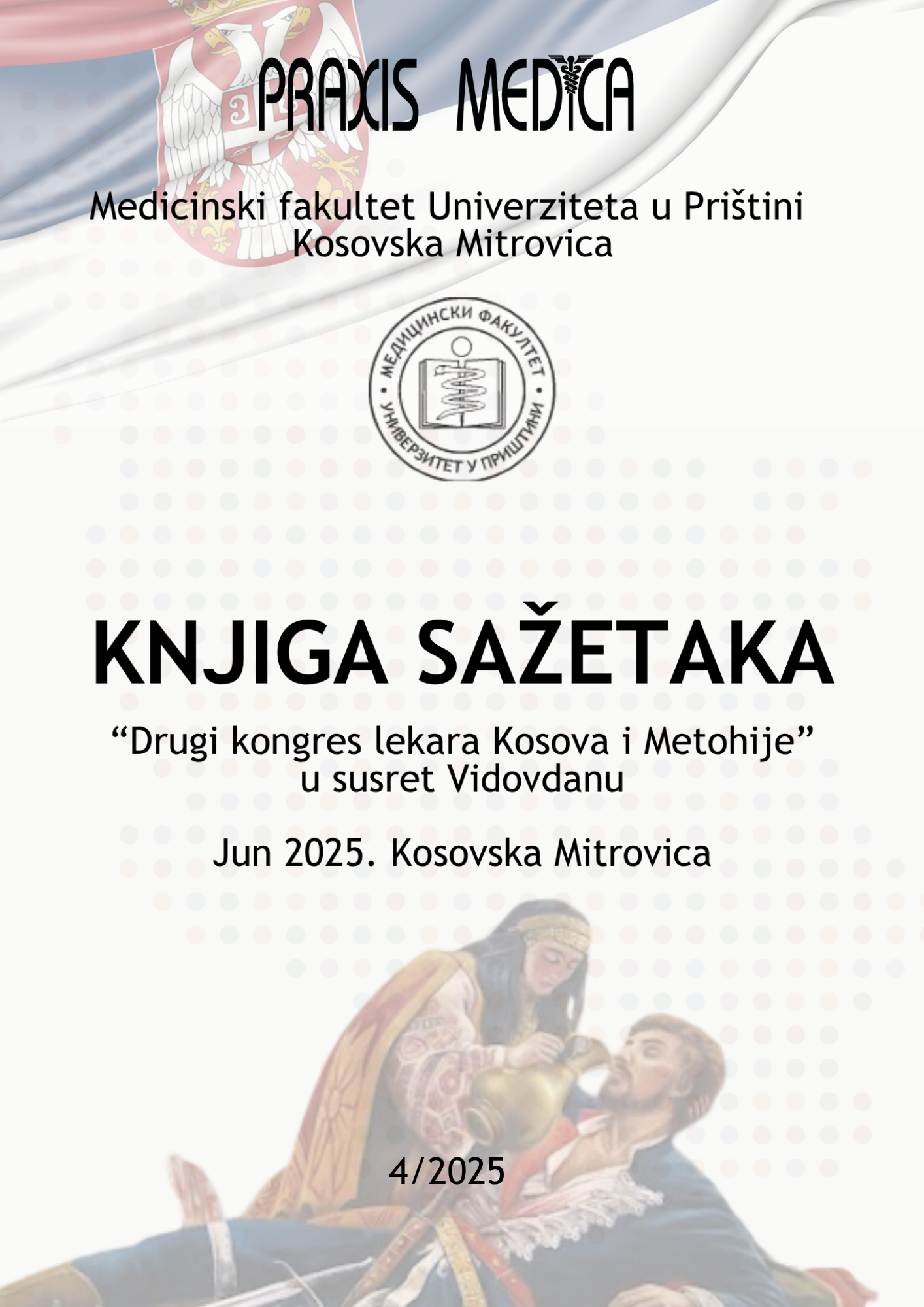
More articles from Volume 36, Issue 1, 2008
THE INFLUENCE OF GENERALANAESTHESIA ON CHANGES ОF ARTERIAL OXYGEN SATURATION SaO2 IN CIGARETTE SMOKERS
ENTS WITH PURULENTMENINGITIS MYELOPEROXIDASE ACTIVITY IN SERUM AND CEREBROSPINAL FLUID OF PATIENTS WITH PURULENT MENINGITIS
PATHOLOGICAL CHANGES OF VAGINAACCOMPAINED WITH HUMAN PAPILLOMA VIRUS INFECTION (HPV)
EXHUMATION OFMASSIVE GRAVES AND SINGLE GRAVES ON THE TERRITORYOFKOSOVO AND METOHIJA(2001-2004)
THE ROLE OF A FAMILY IN POLITOXICOMANIA OXICOMANIA
Citations

0
DEPRESSION AND SUICIDALATTEMPTS AT TREATMENT ACNE VULGARIS WITH ISOTRETINOIN
Clinic for dermatological diseases KBC-Pristina , Kosovska Mitrovica , Kosovo*
Clinic for dermatological diseases Medical faculty Pristina , Kosovska Mitrovica , Kosovo*
Clinic for dermatological diseases Medical faculty Pristina , Kosovska Mitrovica , Kosovo*
Clinic for neuropsychiatric diseases Medical faculty Pristina , Kosovska Mitrovica , Kosovo*
Published: 01.01.2008.
Volume 36, Issue 1 (2008)
pp. 99-101;
Abstract
Oral isotretinoin is highly effective in treatment of patients with severe acne, but has been concerned with causing occasional depression. Clinicians should be alert to the high prevalence of depression among people with acne. Isotretinoin has many unwanted effects, among which possible unproven effects on mood have to be included. If depression or other mood change occurs, then isotretinoin treatment should be discontinued. If treatment is continued, psychiatric support should be obtained.
Keywords
References
Citation
Copyright

This work is licensed under a Creative Commons Attribution-NonCommercial-ShareAlike 4.0 International License.
Article metrics
The statements, opinions and data contained in the journal are solely those of the individual authors and contributors and not of the publisher and the editor(s). We stay neutral with regard to jurisdictional claims in published maps and institutional affiliations.






